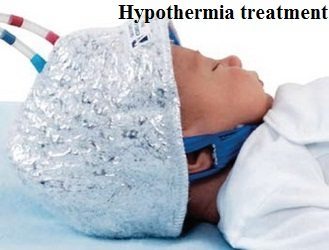Arkansas Hypoxic-Ischemic Encephalopathy (HIE) Lawyers
Hypoxic-ischemic encephalopathy (HIE) is the official term for the injury that occurs when a baby doesn’t get enough oxygen to their brain (also called oxygen deprivation at birth, or birth asphyxia). This can happen in utero or during labor and delivery. In many cases, hypoxic-ischemic encephalopathy (HIE) is preventable, and it is the responsibility of medical professionals to avoid these preventable diagnoses. This is done when physicians follow standards of care and deliver the baby in a timely fashion, especially when abnormalities in fetal heart rate are first detected (1).
What does hypoxic-ischemic encephalopathy look like?
Hypoxic-ischemic encephalopathy (HIE) has certain recognizable features that can be red flags for parents. Often, babies with hypoxic-ischemic encephalopathy (HIE) had a difficult birth. It is possible they were stuck in the birth canal, were in labor for an exceptionally long period of time, or needed resuscitation or a NICU stay after they were born. Babies with HIE may have seizures , trouble with feeding, or may begin to miss developmental milestones as they get older. One of the key risk factors for HIE is a low Apgar score; a low Apgar score at birth can indicate that the baby is at risk of doing poorly. Parents can always ask medical staff what their baby’s Apgar score is and talk to their doctor about what this means for their child.
How is hypoxic ischemic encephalopathy (HIE) treated?
Early diagnosis is key. There is only one treatment for hypoxic-ischemic encephalopathy (HIE), and it must be administered within 6 hours of birth to be effective. This treatment, called hypothermia therapy (also known as brain cooling, whole-body cooling, or cooling therapy), allows the baby’s brain to repair itself as medical professionals lower the baby’s body temperature and metabolism. This slows down the ripple effect a brain injury can produce. Hypothermia therapy has been proven to decrease the severity of disability, but must be administered within the 6 hour timeframe – the sooner, the better.

What can parents do if their child was diagnosed with hypoxic ischemic encephalopathy (HIE) in Arkansas?
Unfortunately, one of the most common trends we see at ABC Law Centers: Birth Injury Lawyers (Reiter & Walsh, P.C.) is that babies with HIE do not get treatment in a timely fashion, meaning that critical treatment opportunities are missed. If you begin to see that your child is not developing properly after a difficult birth, it is important to talk to a birth injury attorney as soon as possible. This must be done within a certain time frame or the parent will not be able to pursue a case at all (a concept called the ‘statute of limitations’). Because these time frames vary significantly from state to state, it is best to ask an attorney directly about the specific circumstances of your case.
Arkansas and nationwide birth injury attorneys
If you are worried about your child’s cerebral palsy, developmental delays or seizures, contact ABC Law Centers: Birth Injury Lawyers (Reiter & Walsh, P.C.) today. We take cases across Arkansas and nationwide. Our firm focuses exclusively on birth injury, providing us with the necessary expertise for litigating these complex cases. We work with life care planners, medical experts, and economists to ensure your child’s future medical care, therapy, and other needs will be taken care of throughout their life.
Do you have a case?
Contact us today to begin your free consultation. Clients pay absolutely nothing unless we win or favorably settle their case.
Sources
- Hypoxic-Ischemic Encephalopathy (HIE): Legal Help for Birth Injuries. Retrieved December 27, 2020, from https://www.abclawcenters.com/practice-areas/prenatal-birth-injuries/fetus-or-newborn-medical-problems/hypoxic-ischemic-encephalopathy/